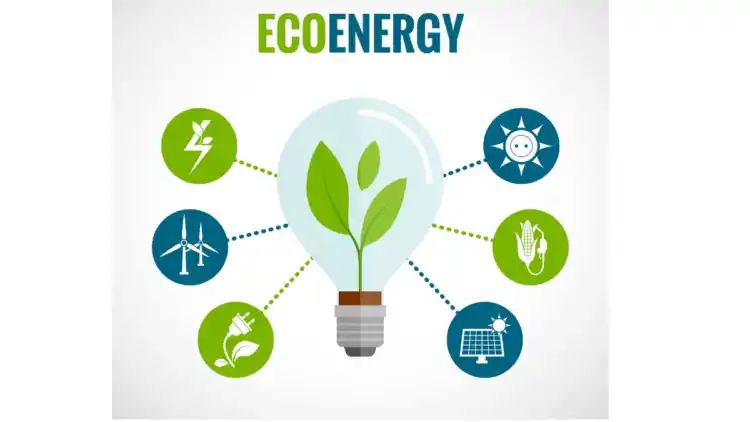Alternative energy source: can India ditch fossil fuels with batteries, hydrogen, CNG, and biofuels?

In the pursuit of a sustainable future, the global movement to reduce carbon emissions has gained momentum, driving nations to explore alternative energy sources beyond traditional fossil fuels, and addressing the world’s energy storage challenges.
India stands at a crossroads, contemplating a shift towards batteries, hydrogen, CNG, and biofuels to pave the way for a cleaner, greener future.
India’s electric vehicle segment achieved a historic milestone in 2023, surpassing 1.5-million-unit sales with an impressive 50% year-on-year growth. Despite policy initiatives and incentives like Auto Production Linked Incentive (PLI) and FAME II, EV penetration remains relatively low, accounting for only around 1% of total sales. There is still a need to address challenges such as range anxiety, high prices, and inadequate charging infrastructure to accelerate the growth of electric mobility in India. As the government and industry players collaborate on technological advancements, the dream of widespread e-mobility inches closer to reality.
The country has also emerged as a major player in biofuel production and consumption, with the potential to triple both consumption and production in the next five years. Coordinated policies, political support, and abundant feedstocks have positioned India to lead the way in biofuel deployment. The launch of the Global Biofuels Alliance in 2023, with India at the forefront, presents an opportunity to further boost global biofuel deployment. With a projected 30% increase in biofuel demand over the next five years, India’s commitment to sustainable biofuels aligns with the global push towards cleaner alternatives, making significant strides in the race to reduce carbon footprints.
Moreover, the evolution of the passenger vehicle segment in India, particularly in the Rs 5-15 lakh price bracket, has witnessed a shift towards compressed natural gas (CNG) as a preferred fuel option. The introduction of BS-VI emission standards in April 2020 marked a turning point, leading to a surge in CNG vehicle sales. Data from JATO Dynamics reveals a remarkable increase in CNG sales, growing from 161,378 units in FY21 to 421,420 units in FY23. With CNG penetration rising from 6.59% in FY21 to 11.03% in FY23, it’s evident that CNG is emerging as a significant contributor to India’s clean energy transition.
As India accelerates its transition towards cleaner transportation, the localization of fuel cells for Battery Electric Vehicles (BEVs) and Hybrid Vehicles becomes a pivotal focus. This move not only drives technological advancements but also supports the government’s goal of reducing dependence on traditional fuels.
India’s rapid economic development and soaring population contribute to a growing energy demand, with the road transport sector heavily reliant on petroleum oil. The import of over four-fifths of crude petroleum places a substantial burden on the country’s import bill. In a bid to decarbonize the road transport sector and address energy security and air quality concerns, India explores alternative fuels such as biofuels, compressed natural gas, methanol, electricity, and hydrogen. These alternatives not only contribute to reducing global CO2 emissions but also offer significant opportunities for the nation’s economic growth by 2030, diminishing reliance on crude-producing nations.
India stands at the forefront of a transformative energy revolution. Integrating batteries, hydrogen, CNG, and biofuels into the nation’s energy landscape signifies a resolute commitment to sustainable mobility and a renewable energy future. As hydrogen emerges as a pivotal player in clean energy, the nation anticipates a shift towards zero-emission solutions, contributing significantly to a sustainable and eco-friendly future. The remarkable growth of CNG in India’s passenger vehicle segment propels the nation closer to a more sustainable and environmentally conscious mode of transportation.
The surge in investments and production of biofuels positions India as a key player in the global biofuel landscape. The establishment of the Global Biofuels Alliance, under India’s helm, further contributes to a cleaner and greener planet.
In the broader context, collective national commitment extends beyond corporate endeavours, building a resilient, eco-friendly, and economically robust future. India envisions a future where batteries, hydrogen, CNG, and biofuels converge to redefine the energy landscape, not only addressing immediate environmental challenges but propelling the nation to global leadership in sustainable energy practices. As the nation embarks on this promising trajectory, the fusion of technological innovation and collective commitment promises a future where energy becomes a powerful catalyst for positive change, answering the call to ditch fossil fuels and embrace a cleaner, greener tomorrow.
The author is the President (Strategic Partnership) at C4V.
Disclaimer: The views and opinions expressed in this article are solely those of the original author. These views and opinions do not represent those of The Indian Express Group or its employees.





